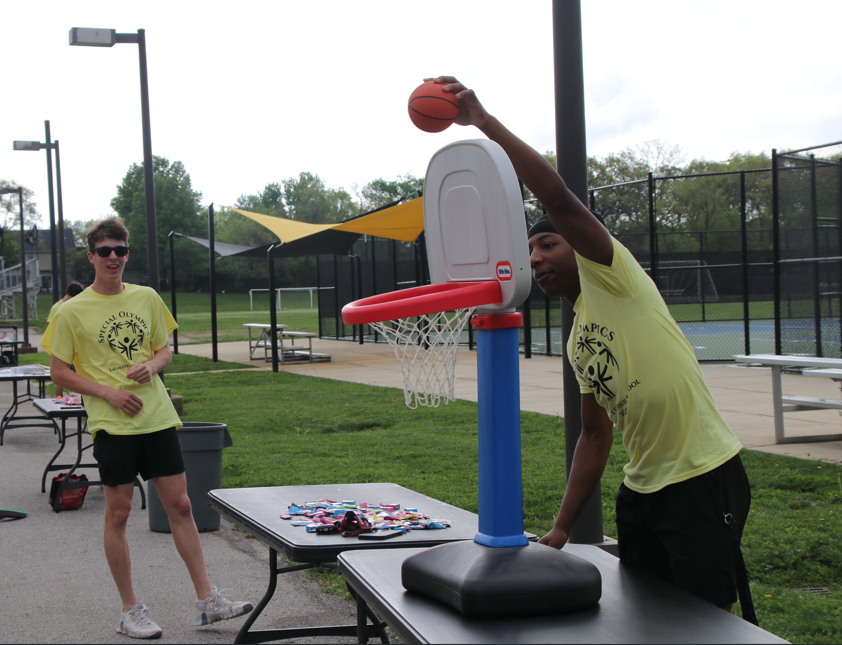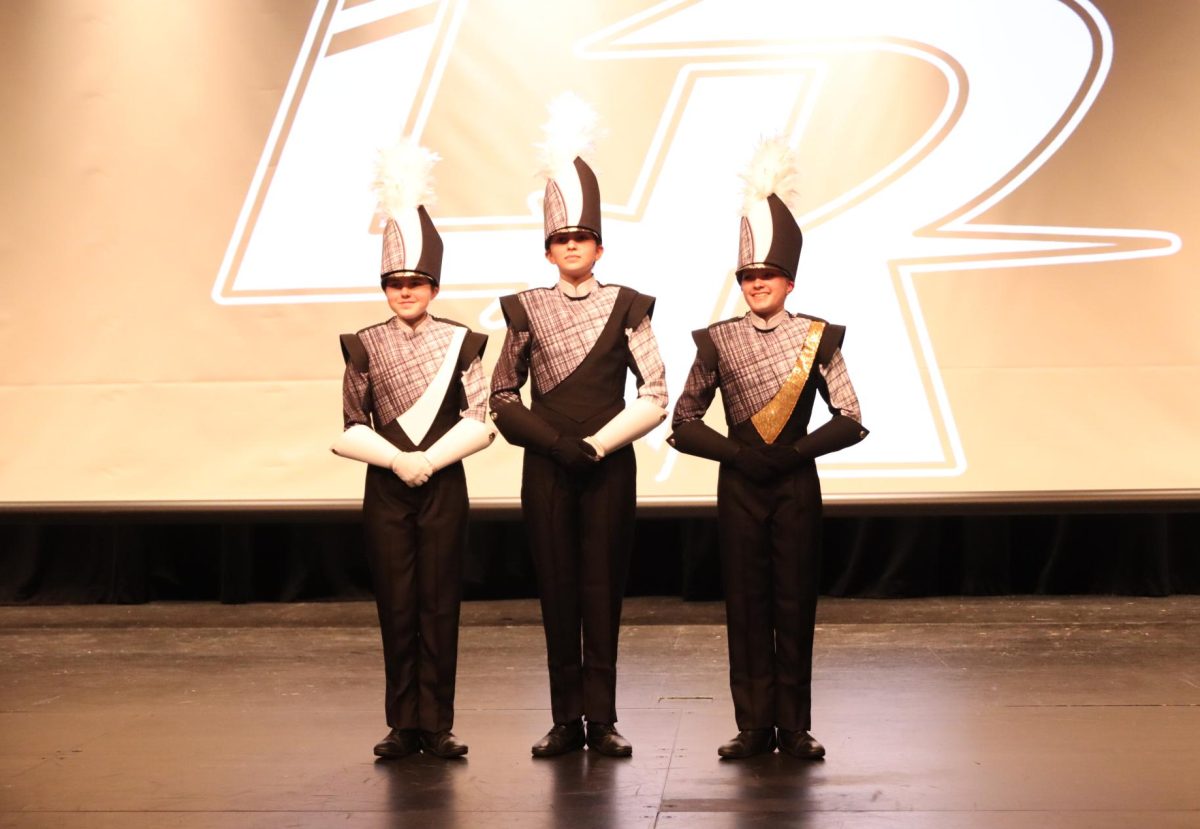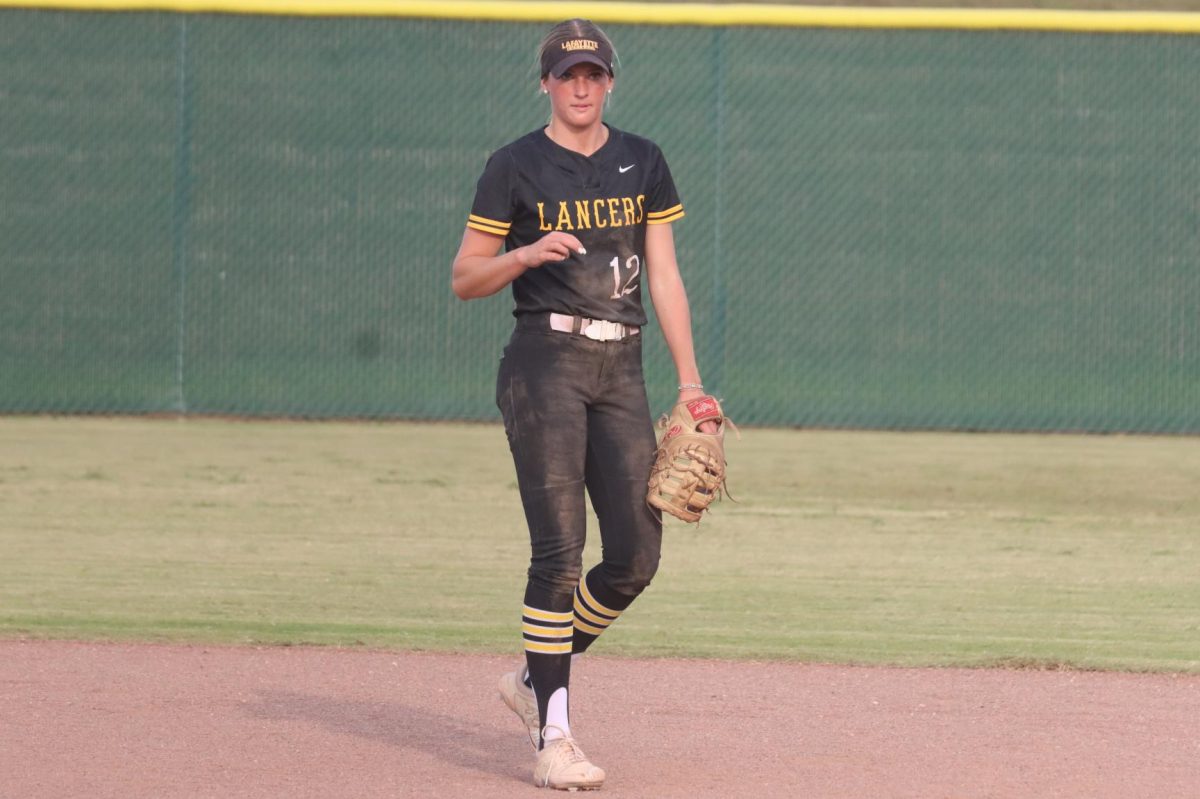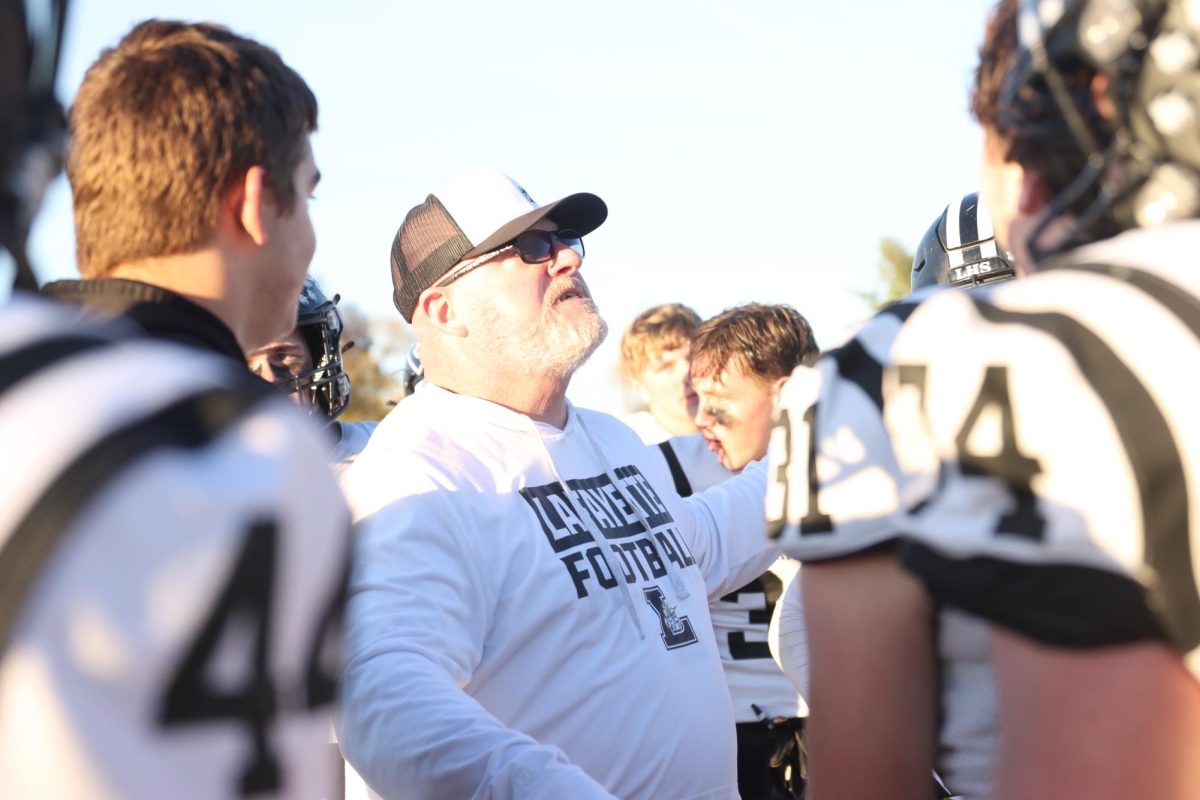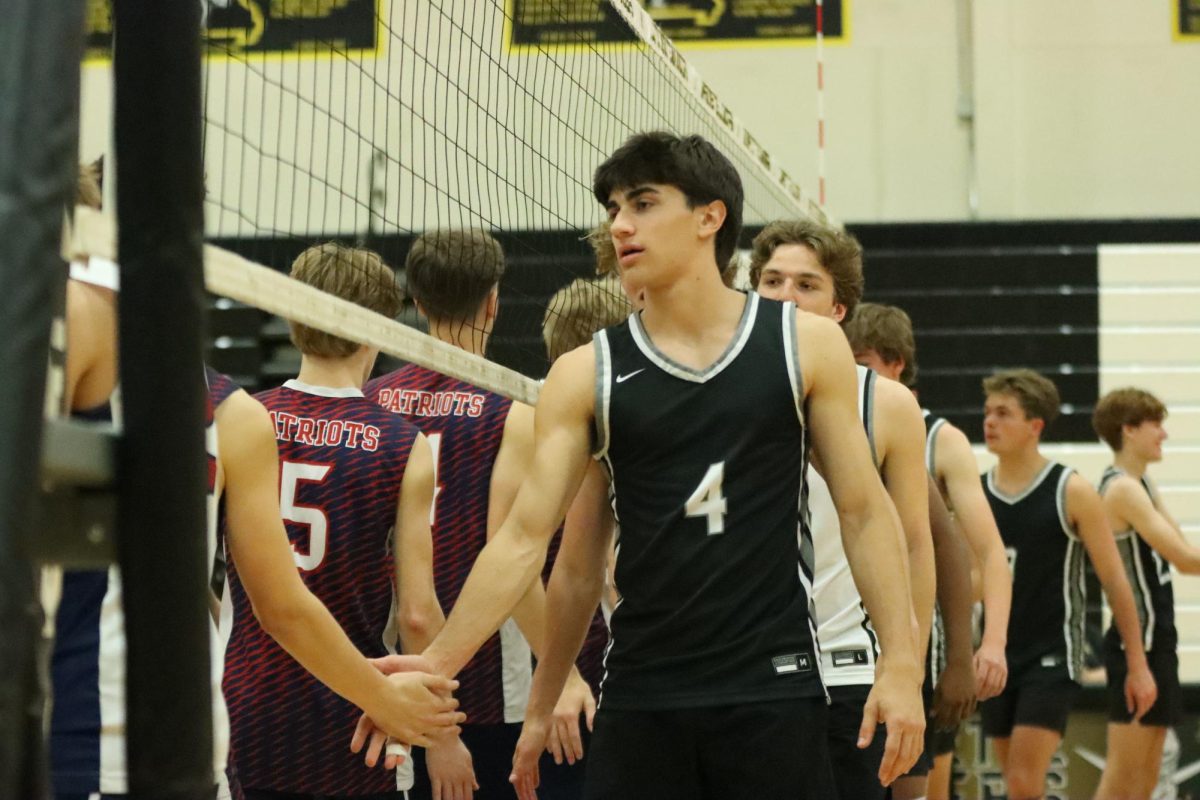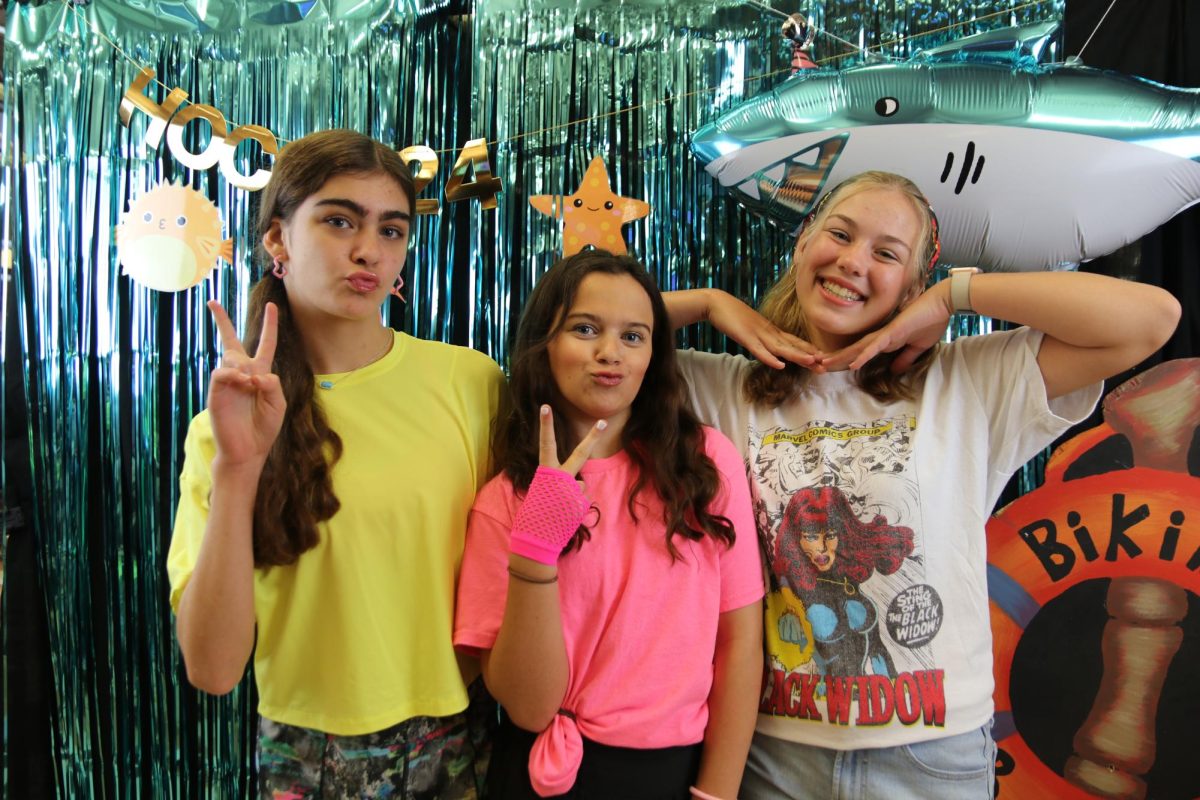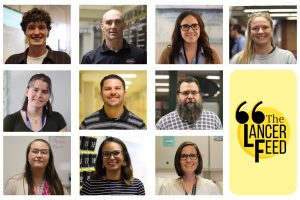Chicken Soup for the Soil
Q&A with junior Mary Jones, composter
February 14, 2022

About a year ago, junior Mary Jones moved to Chesterfield. Prior to the move, she lived in Kirkwood, where she started her own composting business in her neighborhood. The idea came from a decision in her family to eat more organic foods and invest more time in gardening, which created the perfect environment to begin composting.
How did you start composting in the first place?
“Honestly, personal interest and not wanting to kill the planet. It started with a plastic box that completely failed because I didn’t know enough about letting air into it, or else it just produces methane, which is what I was trying to avoid. I had been looking into a project they did in New York with a timer that concluded the effects of climate change aren’t reversible anymore, I did the math and [the timer ran out] when I [would] graduate college if I go to a four-year. I had free time so I started looking into things that weren’t as hard to do. [Composting] is a passive thing, it only takes about two hours out of your week in total, thirty minutes for collecting and the other [time] for turning and rotating.”
What was the most challenging part of starting composting?
“Learning what compost was and how to execute it. It’s a natural process that occurs in nature, it’s not super hard but learning what you need to do was the hard part, especially with my family not necessarily wanting to. They were like ‘Why do you have these boxes in the backyard?’, it was such a strange thing. Also trying to get past the anxiety of asking other people ‘Can I take your food waste?’ and holding cauliflower scraps in my hand and saying ‘this is going to be soil at some point’, that’s just not something that you hear.”
What is the most rewarding part of composting?
“It kind of forced me to spend time outside and it was nice because I started right before the quarantine. Since it was already in place, when we had the stay-at-home orders I had something to do outside of just going on walks. Also being able to see my neighbors when they would put their stuff out during quarantine, which sounds super creepy but I would just be at the top of their driveway and say ‘hey’ and then go back. People have different processes of how many steps they rotate through, I just do three. Seeing it go from straight food scraps and yard waste like lawn clippings and then in the second box, seeing it get kind of brown but not necessarily dirt and then the in the third one it looks like what you would get from a bag. It’s so cool how the world works. I know a lot of people had quarantine hobbies, [composting] gave me something to put more into and created an outlet for conversations with people. Composting is a fairly common practice in certain parts of the world and it’s become more popular in America now.”
Has your family been involved in composting with you?
“When my sister gets into something, I tend to get into it because we share a similar mindset towards things like that. My sister and I weren’t close growing up, [our relationship] was me wanting to be like her a lot and she was the middle child so she was wanting to be her own person. My brother passed in 2019 so when that happened, we loved each other but we became friends at that point. It made us realize that we were able to have things in common and not be copying each other. She’s the one who gave me the confidence to go and put the fliers in my neighbor’s mailboxes. She was like ‘I’ll go with you, we’ll walk the dogs and put the [flyers] on the [mailbox flags]. She definitely [helped me follow through], she loved writing and having a planner and checking stuff off a list and so she sat down with me and we were just talking about what we wanted to do and I was saying it would be so cool if [my composting business] happened and she was writing it down. By the time we moved out of that house, out of the ten things on the list, I had six crossed off. She was the reason it expanded outside of my family. My mom and my dad don’t really get the point of it but they’re happy I’m outside instead of in the basement or whatever. But it’s hard if you’re family’s not on board with it, it’s like being that weird person at the family get-together. They’re like ‘Oh, so you compost? What’s that?’. [With my family] it’s been [teaching] what not to put in compost, like poultry, seafood and milk, at least with my compost.”

“I started composting with my family’s food scraps. I saw my neighbors throwing out food scraps and I was like ‘I could definitely be using that to make better soil’. I started by sending an email to the neighborhood [asking] if I could give them a bin to put their food scraps and lawn waste in. They put the bin by their trash cans on trash day and after school, before the trash truck would come, I’d grab the lawn and food scraps. That way, it was convenient for them to bring out. Then, I would put it into my composting system and when it eventually turned over, I would ask if they wanted some of the soil for their pots or gardens. Some people did, some people didn’t but it was still profitable.”
Have you thought about starting it back up since you’ve moved?
“I definitely want to but I know the neighborhood that I’m in now has some different regulations with having crates in your backyard even though I definitely have the space for it, I just have to get it passed by the HOA. It’s definitely a goal to [start it here] or find a space that I could start to compost again in. There’s such a high amount of food just wasted because we don’t consume it. [Composting] produces [soil] that’s cheaper than buying soil bags from hardware stores. I want to get it started back up but I don’t know what people are going to think about it.”
A lot of high schoolers don’t really think about composting or the environment, what do you think sets you apart?
“I’ve seen more people having composting services pick up for them so I guess it would be the fact that I do it myself or that I know how to compost. I have a hard time following through with new ideas and so it was honestly a miracle that I was able to get it going. I also try and make sure that when I’m doing something, if it’s an easy switch, like instead of waiting in a drive-thru line, I’ll just park my car and walk in instead of burning gas. I grew up in a very frugal household, we were always conserving whatever money we could get and a lot of the environmentally-friendly swaps save me money. I have a nice mix of enjoyment and being able to see the fact that I’m able to get money from it and give somewhat back to the ecosystem we live in. I think it’s so interesting how in the environment it all just goes together somehow.”
Have you thought about future careers in environmental sciences?
“I’ve been hesitant about it because I tend to lose the drive for things if it becomes a choice to go to school or further a career in it but I want to keep it as an on-the-side thing. It would be crazy to think that if it does grow into enough where it would be profitable to do part-time at college or something. But I want it to be in my free time.”
For information on how you can start composting, check out this site.




